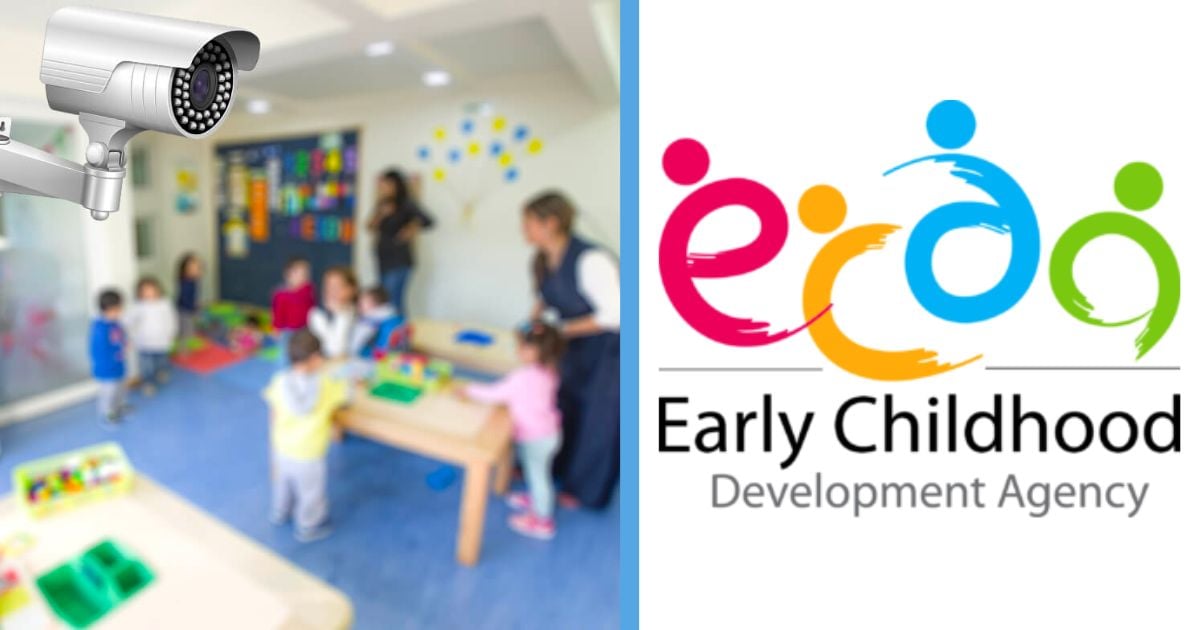The events of the Kinderland saga, during which cases of mistreating children were reported in two separate Kinderland pre-schools, must still be fresh in everyone’s minds.
In what seems to be impeccable timing by the Early Childhood Development Agency (ECDA), it released a statement mandating that all Pre-Schools and Early Intervention (EI) centres in Singapore must install CCTV cameras by July 2024.
The statement was also released on 31 August 2023, merely a day after Lin Min, the culprit behind the Woodlands Mart pre-school incident was charged for the ill treatment of a child.
ECDA Had Been Engaging Pre-Schools About Installing CCTVs Since 2022
Contrary to popular belief, the move to install CCTVs in every pre-school was not in direct response to the Kinderland saga.
In fact, ECDA had already notified pre-school operators of the mandate since early 2023, and had been engaging the pre-school sector about the topic since 2022.
Currently, more than 60% of preschools and 100% of EI centres have already installed CCTV cameras on their premises.
For preschools that have yet to install CCTV cameras, it was highlighted that more time was needed to make the necessary arrangements, such as implementing clear policies and proper protocol to access CCTV footage.
According to ECDA, it will work closely with operators to ensure their CCTV system and cameras are installed and used appropriately to protect the privacy of both children and staff.
ECDA Introduces Measures to Protect Privacy of Children and Staff
From 1 July 2024, CCTV cameras will be required in key access points and areas children use, such as classrooms, activity rooms, play areas, and infant napping rooms.
One common concern for many parents about installing CCTVs involves their children’s privacy. To ensure the privacy of staff and children, CCTV cameras will not be allowed in toilets, changing rooms and staff rest areas, said ECDA.
But what if the parents are the issue? There is another concern that “kaypoh” parents may take CCTV footage out of context, jumping to conclusions and wrongfully accusing staff of misdeeds.
ECDA has also reassured pre-school operators that access to CCTV footage will only be granted to parents to provide an objective reference point to clarify an incident that might have compromised the child’s safety or to assist the investigation of serious incidents within the preschool premises. Pre-schools can turn down a parent’s request if it is made on unreasonable grounds.
After the Kinderland pre-school incidents involving a 33-old-teacher pouring water down a child’s throat and another 48-year-old teacher allegedly smacking a child in the head, it is all the more important that CCTVs are in place to monitor and provide evidence for similar cases in the future.
As part of ongoing efforts to ensure the safety of children, ECDA said that it will continue to work with educational institutes and training providers to incorporate child-safe practices in the training curriculum for early childhood educators.
ECDA also added that it ensures all educators are trained on child-safe practices before deployment. These include appropriate child management strategies and practices prohibited under the Early Childhood Development Centres’ Regulations.
The prohibited practices include:
- Corporal punishment.
- Giving the child harsh, humiliating, belittling or degrading response of any kind.
- Neglecting the child.
- Force-feeding the child.
Now, some of them look familiar, right?
